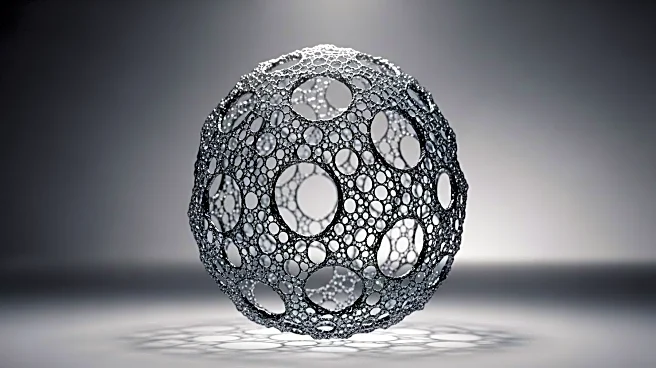What's Happening?
HydroGraph Clean Power has been awarded a US patent for its innovative actuator technology utilizing fractal graphene. This technology employs electrically conductive porous carbon materials to generate controlled mechanical force. The patent marks a significant milestone for HydroGraph, expanding its intellectual property portfolio beyond its foundational graphene synthesis patents. The actuator design leverages the unique properties of fractal graphene, which is over 95% air, to create electrothermal actuators that are rapid, silent, and scalable. The global actuators market is projected to grow significantly, highlighting the demand for efficient and adaptable actuator technologies across various sectors.
Why It's Important?
The patent positions HydroGraph to capitalize on the growing demand for advanced actuator technologies in industries such as automotive, manufacturing, robotics, and consumer appliances. The unique properties of fractal graphene offer potential advantages in terms of efficiency, noise reduction, and scalability, which are critical in these sectors. The ability to generate force using electrically conducting air could lead to innovations in motion technologies that are lightweight and adaptable. This development strengthens HydroGraph's long-term position in the market and provides opportunities for collaboration with partners to explore applications where their materials can add value.
What's Next?
HydroGraph plans to explore the development of a range of actuators, from cost-sensitive carbon black versions to premium graphene foam designs. The company aims to work with potential partners to identify suitable applications for this technology. Further validation and development are required to fully realize the potential of fractal graphene actuators. HydroGraph's focus remains on the commercialization of high-purity graphene, but the patent opens new avenues for innovation and market expansion.
Beyond the Headlines
The patent underscores the versatility of HydroGraph's technology platform, highlighting the potential for fractal graphene to revolutionize actuator design. The intrinsic properties of the material could lead to new types of actuators that are quiet, lightweight, and adaptable across scales. This innovation may drive long-term shifts in how motion technologies are developed and applied, particularly in environments where traditional motors are impractical.









